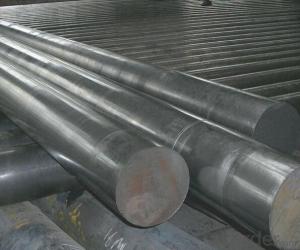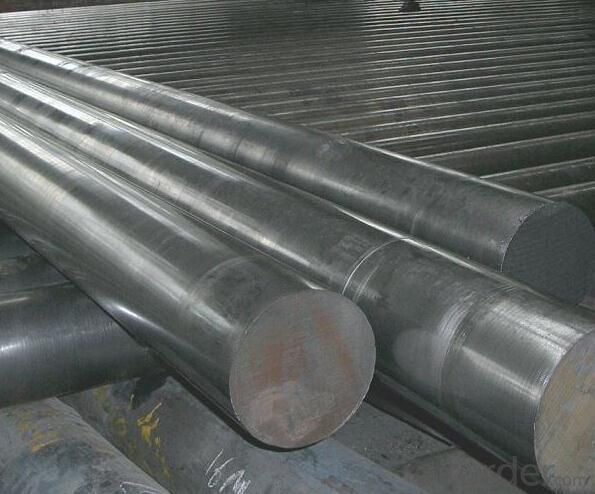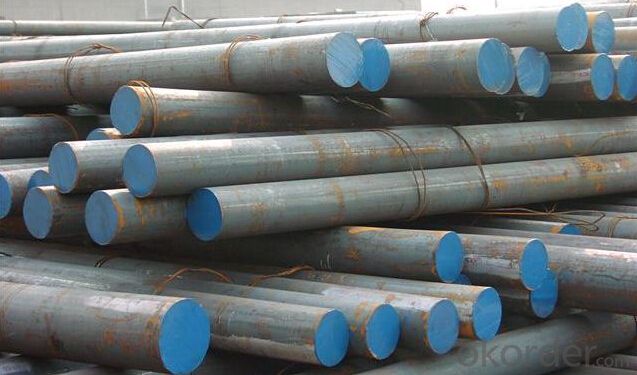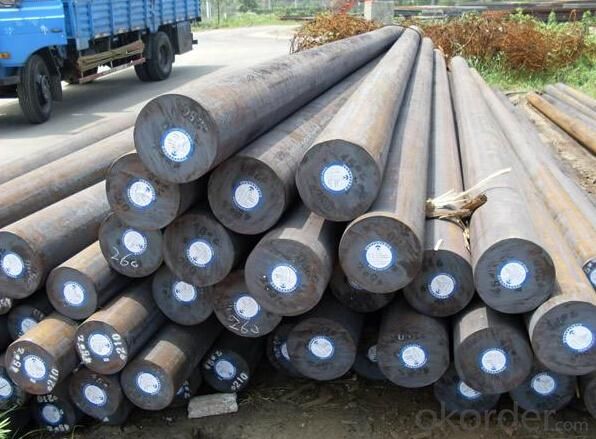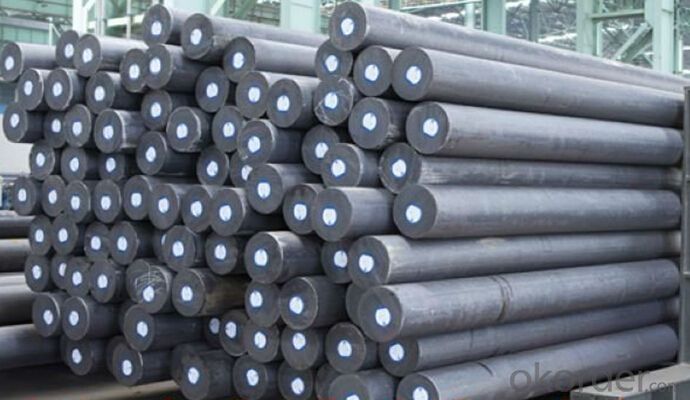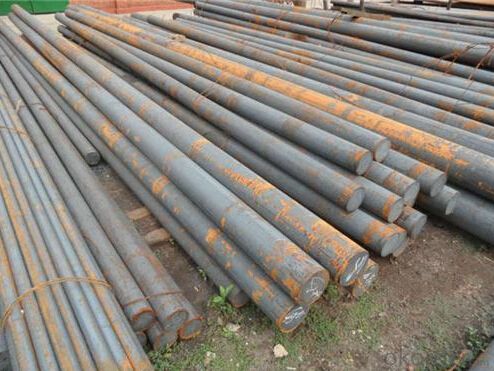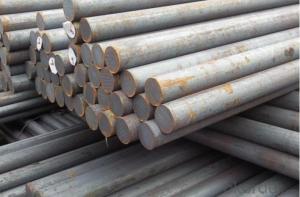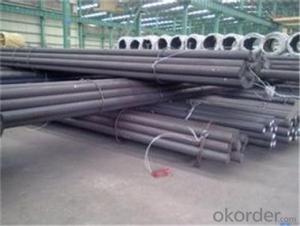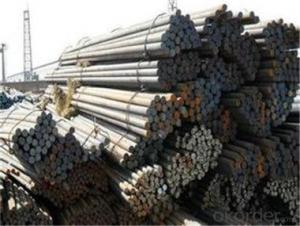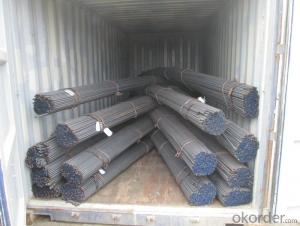Grade S235JR CNBM Carbon Steel Round Bar with High Quality
- Loading Port:
- Shanghai
- Payment Terms:
- TT OR LC
- Min Order Qty:
- 3 m.t.
- Supply Capability:
- 10000 m.t./month
OKorder Service Pledge
OKorder Financial Service
You Might Also Like
Specification
Product Description
S235jr Steel Round Bars/round ba
Grade:SS400, A36, Q235
Size:8mm-35mm
Technique: hot rolled
Certification: CE,SGS,ISO
Chemical Composition
C | Si | Mn | P | S | S |
0.14~0.22% | ≤0.30 | 0.30~0.65 | ≤0.045 | ≤0.050 | ≤0.050 |
Application:
Mold bottom,
Plastic mold
Construction machinery parts
Automobile parts
Security grills
Screens
Construction
Company Information:
CNBM International Corporation is the most important trading platform of CNBM group.
Whith its advantages, CNBM International are mainly concentrate on Cement, Glass, Iron and Steel, Ceramics industries and devotes herself for supplying high qulity series of refractories as well as technical consultancies and logistics solutions.
Packing & Delivery
1. Packaging: seaworthy package or as required
2. Delivery: 35-45 days or based on quantity
Products Show
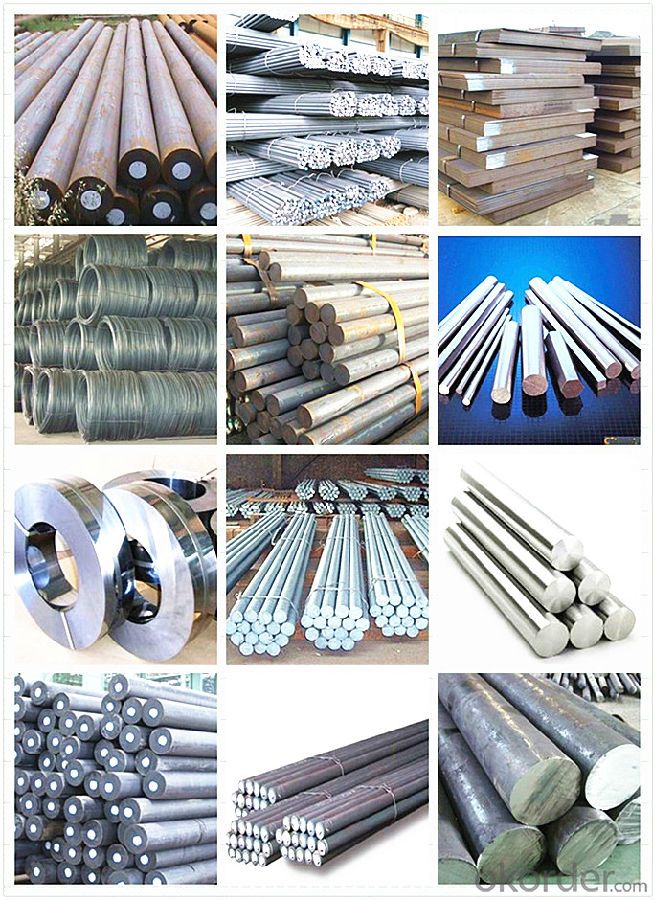
FAQ:
1.Your advantages?
Professional products inquiry, products knowledge train (for agents), smooth goods delivery, excellent
customer solution proposale
2. Test & Certificate?
SGS test is available, customer inspection before shipping is welcome, third party inspection is no problem
3. Factory or Trading Company?
CNBM is a trading company but we have so many protocol factories and CNBM works as a trading department
of these factories. Also CNBM is the holding company of many factories.
4. Payment Terms?
30% TT as deposit and 70% before delivery.
Irrevocable L/C at sight.
5. Trading Terms?
EXW, FOB, CIF, FFR, CNF
6. After-sale Service?
CNBM provides the services and support you need for every step of our cooperation. We're the business
partner you can trust.
For any problem, please kindly contact us at any your convenient time.
We'll reply you in our first priority within 24 hours.
- Q: How does special steel perform in terms of creep resistance?
- Special steel performs exceptionally well in terms of creep resistance. It is specifically designed to withstand high temperatures and long-term exposure to stress, making it highly resistant to deformation or failure under such conditions. Its unique composition and heat treatment processes enhance its ability to maintain structural integrity, making it a preferred choice for applications where creep resistance is crucial, such as in power plants, aerospace components, and high-temperature industrial environments.
- Q: What are the different forms of special steel available in the market?
- There are several different forms of special steel available in the market, each with its own unique properties and applications. Some of the most common forms include: 1. Stainless Steel: This is a versatile form of special steel that is highly resistant to corrosion and staining. It is commonly used in the production of cutlery, kitchen appliances, and medical equipment. 2. Tool Steel: This type of special steel is highly durable and resistant to wear and tear. It is primarily used in the manufacturing of cutting tools, molds, and dies. 3. High-speed Steel: As the name suggests, high-speed steel is designed to withstand high temperatures and retain its hardness even at elevated speeds. It is commonly used in the production of drill bits, saw blades, and gear cutters. 4. Alloy Steel: This form of special steel is created by adding various alloying elements such as chromium, nickel, or molybdenum to improve its strength and durability. Alloy steel is widely used in the automotive industry, construction, and machinery manufacturing. 5. Carbon Steel: Carbon steel is a popular form of special steel due to its affordability and high strength-to-weight ratio. It is commonly used in the construction of buildings, bridges, and pipelines. 6. Maraging Steel: Maraging steel is a type of low-carbon, high-nickel steel that is known for its exceptional strength and toughness. It is often used in aerospace and defense applications, such as aircraft components and missile casings. 7. Spring Steel: This form of special steel is specifically designed to withstand high stress and maintain its shape under repeated heavy loads. It is commonly used in the production of springs, such as those found in automotive suspensions and mechanical devices. These are just a few examples of the different forms of special steel available in the market. Each type has its own unique set of properties and applications, making them suitable for a wide range of industries and manufacturing processes.
- Q: How is stainless steel used in food processing?
- Stainless steel is widely used in food processing due to its exceptional properties such as corrosion resistance, durability, and hygiene. It is used to manufacture various equipment like storage tanks, mixing vessels, piping systems, and food preparation surfaces. Stainless steel's non-reactive nature prevents contamination and ensures food safety, while its smooth surface allows for easy cleaning and maintenance. Additionally, its strength and heat resistance make it suitable for high-temperature processes in food processing plants.
- Q: What are the machining techniques for special steel?
- Some of the machining techniques commonly used for special steel include milling, turning, drilling, grinding, and broaching. These techniques are employed to shape and finish the special steel material according to the desired specifications and requirements. Additionally, special attention is given to selecting appropriate cutting tools, speeds, and feeds to ensure efficient and precise machining.
- Q: How is wear-resistant tool steel used in the production of cutting tools?
- Wear-resistant tool steel is commonly used in the production of cutting tools due to its high hardness and resistance to wear. This steel is able to withstand the abrasive forces and high temperatures generated during cutting operations, resulting in longer tool life and improved cutting performance. The wear-resistant tool steel is typically used to manufacture various cutting tools such as drills, milling cutters, saw blades, and lathe tools, ensuring durability and efficiency in metalworking and machining processes.
- Q: What are the properties of nitriding steel?
- Nitriding steel is a process in which the surface of the steel is hardened and enhanced by introducing nitrogen into its structure. The properties of nitriding steel include increased surface hardness, improved wear resistance, enhanced fatigue strength, and greater corrosion resistance. Additionally, nitriding steel exhibits a low coefficient of friction, excellent dimensional stability, and increased resistance to heat and oxidation.
- Q: What are the different methods of heat treatment for special steel?
- There are several different methods of heat treatment for special steel, including annealing, normalizing, quenching, tempering, and case hardening. Each method involves heating the steel to a specific temperature and then cooling it in a controlled manner to achieve desired properties such as improved strength, hardness, toughness, or resistance to wear.
- Q: What are the different methods for improving the corrosion resistance of special steel?
- There are various methods for improving the corrosion resistance of special steel. One common approach is the addition of alloying elements such as chromium, nickel, and molybdenum, which form a protective oxide layer on the steel's surface. Surface treatments like galvanizing, electroplating, or applying protective coatings can also enhance corrosion resistance. Additionally, heat treatment processes like annealing, quenching, and tempering can modify the microstructure of the steel, making it more resistant to corrosion. Regular maintenance, including proper cleaning and lubrication, is also important in preventing corrosion and preserving the steel's integrity.
- Q: How is special steel used in the manufacturing of industrial machinery?
- Special steel is used in the manufacturing of industrial machinery due to its exceptional properties such as high strength, hardness, and resistance to wear and corrosion. It is commonly used to create components like gears, shafts, and bearings, which are critical for the smooth and efficient functioning of machinery. Additionally, special steel can withstand extreme temperatures and pressures, making it suitable for applications in heavy-duty machinery and equipment, ensuring reliability and durability in industrial settings.
- Q: What is the difference between stainless steel and special steel?
- Stainless steel is a specific type of steel that contains a minimum of 10.5% chromium, which forms a protective layer on its surface, making it highly resistant to corrosion. On the other hand, special steel refers to a wide range of alloy steels that are specifically designed for certain applications or have unique properties, such as high strength, heat resistance, or electrical conductivity. While stainless steel is known for its corrosion resistance, special steel encompasses various types with different compositions and characteristics to meet specific industrial requirements.
Send your message to us
Grade S235JR CNBM Carbon Steel Round Bar with High Quality
- Loading Port:
- Shanghai
- Payment Terms:
- TT OR LC
- Min Order Qty:
- 3 m.t.
- Supply Capability:
- 10000 m.t./month
OKorder Service Pledge
OKorder Financial Service
Similar products
Hot products
Hot Searches
Related keywords
